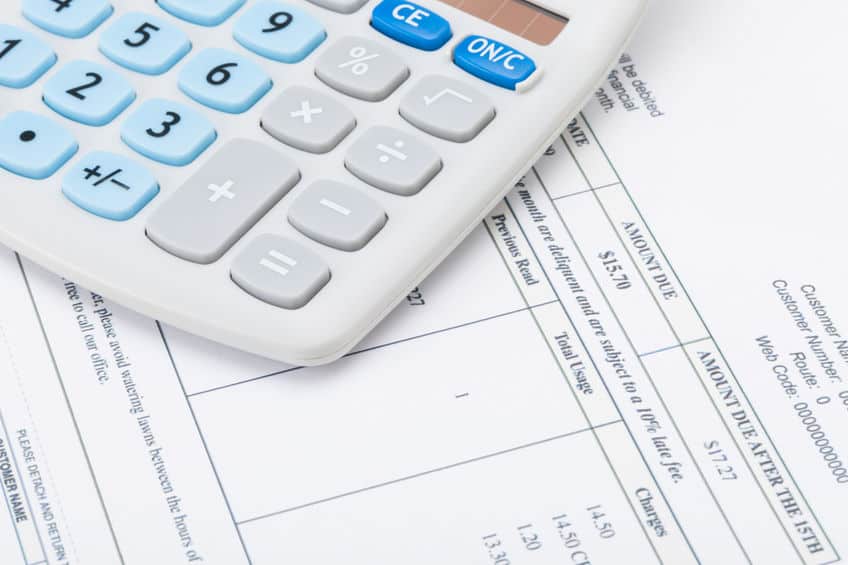How much can I afford to pay for an apartment? If you’re looking for this answer, you’ve come to the right article.
Guidelines
To be sure you don’t fall in love with an apartment that is beyond your means, it’s best to crunch a few numbers. Fortunately, there are some general and well-established rules of thumb to help with that, such as allocating up to 30 percent of your income to rent. So, for example, if you make $50,000 a year in salary, you can reasonably allocate 30% or $15,000 a year of that for rent. $15,000 divided by 12 months is $1,250 for rent. Keep in mind, some experts believe you should allocate 30% to your after-tax rather than pre-tax income.
Guidelines such as this can be helpful in determining what you are likely able to afford. Another way to approach this is to back into the answer and make sure you are comfortable with the amount left over. Understand that rent might include other expenses as well, such as utilities, parking, amenity fees, and more. Make sure you understand what all these costs are and how to compare costs.
Do The Math
Now, let’s get started. This means detailing your income and expenses. Don’t forget to include your savings and investment goals.
Estimate Expenses
Start by estimating your expenses. These include the amount of money you need for items such as phone, transportation, food, car insurance, health insurance, renter’s insurance, student loan payments, utilities, car payments, any other debt payments, healthcare, insurance, clothes, and entertainment.
If you have any other must-haves, such as globe-trotting or health club membership, include those, too.

If you’ve been using software or an app to track your expenses, this budgeting exercise should be relatively easy. If not, you might want to try one out to help in creating a picture of your costs. If you’re setting off on your own for the first time, you may need to make some estimates by getting quotes, for example, on rental insurance (usually no more than $20 to $30 per month in most areas). Consider looking at old statements from banks and credit cards to estimate expenses rather than guessing what you think the expenses will be.
Bonus Tip: Consider putting money aside for the moving process, including moving supplies, movers, furniture for the new apartment, and more which can get costly.
Determine Your Savings Goals

You don’t want to live on the financial edge if you can avoid it. To avoid being one paycheck away from disaster, perhaps you consider creating a rainy-day fund, which you can dip into in emergency situations. For example, if you lose your job or your car needs an expensive repair, you might need some money to tide you over.
Invest in the Future
Now let’s think long-term. Because you can benefit from the compounded growth of your investments, people who start saving for retirement when they are young are more likely to amass a nest egg including items like a 401(K) or an IRA. Discuss this with an expert to learn more about the financial strategies and approaches that might be best for you.
Calculate Your After-Tax Income
Find out your after-tax income.
-
- Use the What Can I Afford? Equation. Having gone through the above, you now have the information you need to plug into an equation that tells you how much left over you have for your apartment: Take-home pay – expenses savings – investments = what you can afford to pay in rent.
An Example
Let’s take the same $ 50,000-a-year salary as an example. Assuming you make $35,000 after taxes and you don’t plan on having any investments this year due to cash flow, $35,000 – $20,000 in expenses – $1,000 savings – $0 investments = $14,000. $14,000 per year is what you have left over for rent. In this case, you have about $1,166 per month to allocate for rent. If your rent is close to this, it may be tight. Make sure you have enough set aside for all expenses for the apartment and are comfortable with the amount.
Keep in mind this number is an estimate and is only as good as the data you put in the formula (i.e. if you underestimate expenses, then the formula may not be accurate). But when you understand how the money flows and put the amounts on paper, you can get a better handle on rent affordability and perhaps feel more comfortable before you go to sign a lease.
Everyone’s situation, lifestyle, and goals are different. Hopefully, you feel a little more prepared to begin the journey.





